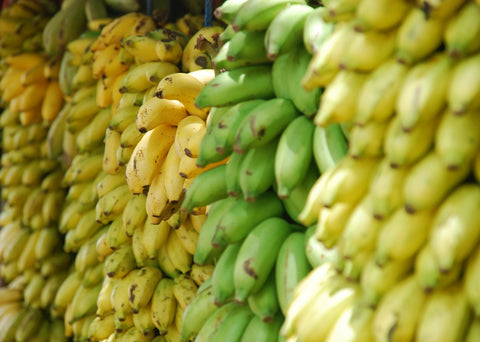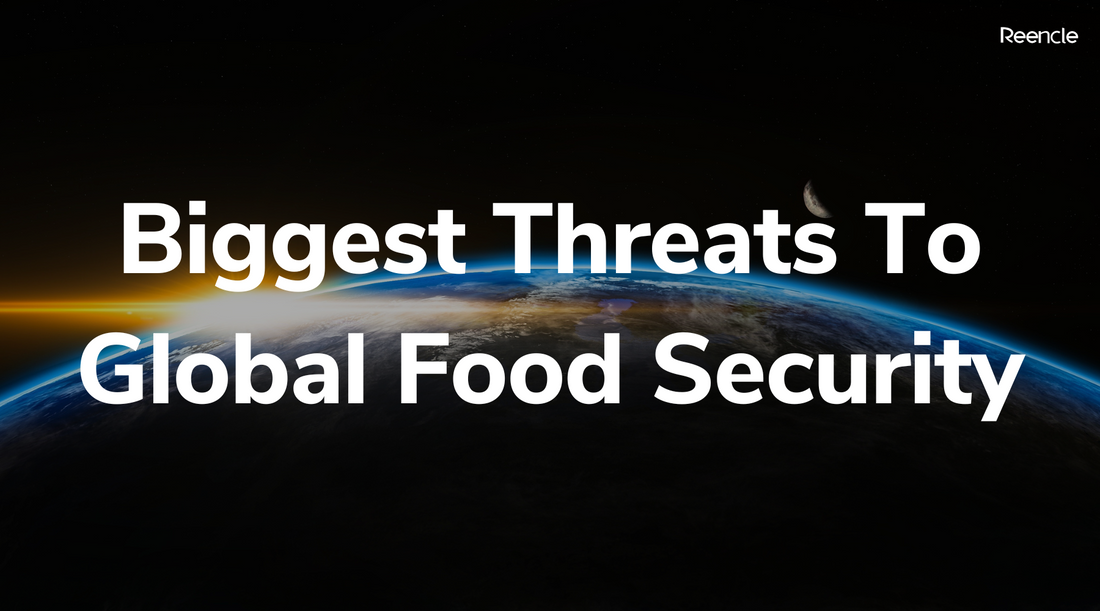In our last blog post, we discussed what food security means and why it matters. With that, it’s important to receive the necessary exposure to information that can help us make more informed decisions regarding the environment. In relation to our previous article, this blog post is about what causes food security to be threatened.
If you haven’t read our previous article regarding food security, let’s define what it means before moving forward. Food security is when all people, at all times, have access to sufficient food that meets their needs and allows them to maintain a healthy life. Despite this being a basic human right, billions of people suffer from the lack of food and essential nutrients around the world, with nearly six million children succumbing to malnutrition-related diseases annually.
Biggest Global Food Security Threats
Climate Change
The climate crisis goes beyond changing weather conditions; it increases the likelihood of extreme occurrences like hurricanes, floods and droughts. Besides that, it also causes the changing and pollution of whole ecosystems which compromises biodiversity and causes the destruction of harvests.
Unsurprisingly, these events ten affect food production and limit the availability of food, while also significantly reducing the quality and accessibility of resources. This causes the stability of food systems around the world to be compromised. A new study by NASA has revealed that maize crops are one of the most highly threatened in the scenario of high greenhouse gas emissions. To alleviate this, countries need to significantly and very quickly reduce their carbon footprint; the failure to do so would result in a 24% decline in maize crop yields by 2030. This would have severe consequences globally. Wheat and rice are also expected to decline drastically due to climate change as supplies have shrunk substantially, especially in developing countries.

Photo Credit: Unsplash User
Food Chain Disruption
In this past year, two extremely significant events have been catastrophic and caused the global food chain to be compromised. The first is the COVID-19 pandemic, and the second is the Ukraine-Russia conflict. Both of these events have led to a shortage of food supplies and an increase in the number of people experiencing hunger and malnutrition.
During the COVID-19 pandemic, businesses had to shut down without any prior warnings, travel restrictions were strictly enforced, and strict lockdowns were carried out. This made COVID-19 more than a health crisis but an economic one, too. People around the world experiences an increase in poverty and inequality; once again, affecting low-income households and developing countries the most. Unfortunately, disruptions in the food supply chain ironically caused an enormous amount of food waste.
The war in Ukraine has raised concerns over global food security, as one of the leading causes of hunger in the world is armed conflicts. This is because wars cause an immediate food shortage in countries involved in the conflict, while the effects of this are felt beyond these countries alone. Ukraine will no longer be able to harvest crops or plant new ones, not to mention sustain their livestock production. This leads to both local and national supply chains being disrupted. The aforementioned wheat crisis is also feared, as European countries and Russia combined contribute to about one-third of all wheat exports.
Population Increase
It is predicted that by 2050, there will be 10 billion people on earth. This means an even bigger strain will be put on resources in a system that’s already struggling to meet global demand. Since 1961, the food supply per capita has grown over 30%, causing the use of nitrogen fertilizers and water to be increased in order to boost agricultural production.
The increase in demand has changed the motive of the global food chain to prioritize capital generation above all else. This shows us that in the modern food system, food insecurity is a byproduct of the system in place as opposed to an inevitable effect of population growth. Instead of a problem of supply and demand, the world is now faced with the issue of unequal food production and distribution. The farming system has also been pushed with intensive techniques to make room for the production of massive food quantities at lower prices.

All that being said, it has become increasingly clear that food insecurity is a global issue, and for the most part is a human-made problem made worse through climate change, international conflicts and our own food habits. We discussed food security more in our previous blog post, where we also touched on ensuring the future of food security.

